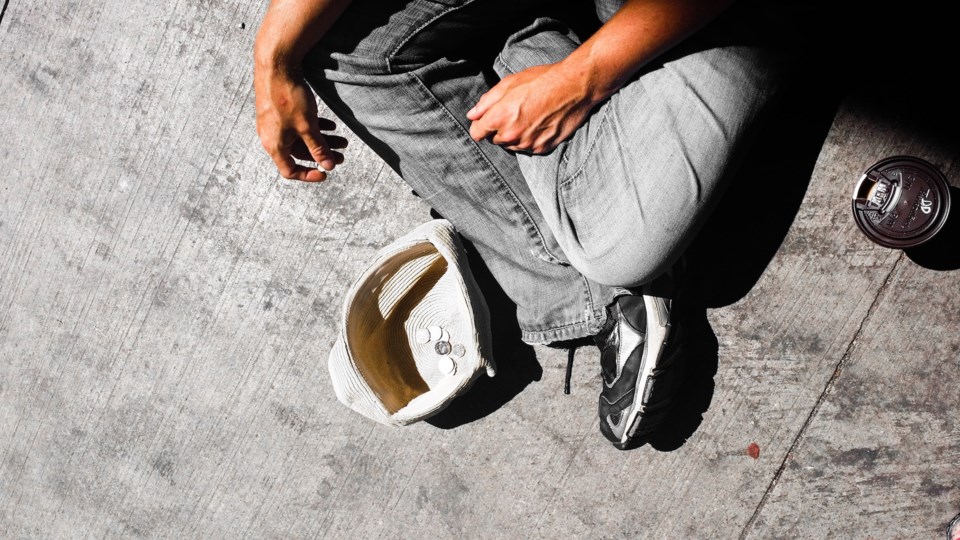The Sault Ste. Marie Poverty Round Table has released its ‘Progress on Impact Report.’
While the recently released report, dated Jan. 24, 2020, notes “there is considerable collaboration amongst members (Poverty Round Table member agencies and their community partners) in some priority areas leading to optimistic results, the report indicates overall issues associated with poverty are on the rise.”
The report defines poverty as “a condition in which someone lacks the means necessary to acquire and maintain a basic level of living standards to achieve their desired level of participation in society.”
Four areas of concern are highlighted in the report, including the local need for food security, crisis diversion and resolution, housing and workforce entry for those afflicted by poverty.
‘Crisis diversion and resolution’ is defined as the provision of services “for those who are seeking assistance that may divert or mitigate a potential situation of crisis.”
Among the 64-page report’s findings, it is observed supermarkets, grocery stores and farmer’s markets are located throughout the Sault, but there is a shortage of these in the city’s east end.
As an example, the report says residents of low-income and/or high density subsidized housing areas, such as La Chaumiere Place and Adrian Drive, have a longer distance to travel to locations which sell nutritious food than in other areas of the Sault.
That means those residents need to drive or take public transportation to grocery stores, but for some low-income persons, these are not options.
As a solution, the report states “establishing an on-demand bus service, delivery program or increasing the number of access points would assist to mitigate this challenge.”
The report also states “it is equally important that they have supports in place to meet their immediate needs, i.e. rent, hydro, transportation and childcare, allowing individuals to focus on the longer term.”
The Community Assistance Trust Program (CAT), described in the report as “the last resort for the working poor,” helps the Sault’s most vulnerable with such needs as eyeglasses, utilities, home heating, rent, baby safety items, emergency dental services and Northern Health Travel Grants.
At the same time, the report says CAT has a limited budget and cannot help everyone who applies.
In addition, it is noted there is a steady gap between quality health care and low-income persons.
The lack of specialized health care in the Sault, the report states, means many people in poverty must travel elsewhere to receive the health care treatment they need.
Travel costs for health care are usually reimbursed through the Northern Health Travel Grant, but individuals first have to pay. People receiving Ontario Works or Ontario Disability Support Program cheques, or low-income individuals, simply may not have the money to cover those costs, even temporarily.
In its look at housing, the report states “if rent and other housing-related costs continue to rise faster than wages in Sault Ste. Marie, an increased demand for subsidized housing would be expected. This means more households will likely apply for subsidized housing and a greater proportion of Sault Ste. Marie households will be on the waiting list. This will require the supply of subsidies in the city to increase as well.”
As far as gaining entry to the workforce is concerned, the report’s authors wrote “Sault Ste. Marie secondary school graduation rates are lower than those of the province. This means proportionately more Sault Ste. Marie youth will face fewer job opportunities, lower salaries and other social pressures than those in Ontario as a whole.”
As a result, it is recommended that the high school graduation rate be increased.
Training programs, with the help of employers, should be developed to help low-income people learn the necessary skills to work in sectors where there is a high level of unmet demand, the report states.
Overall, the Sault Ste. Marie Poverty Round Table report urges “broader participation” and “a call to action” to all levels of the community to reduce poverty by brainstorming opportunities and strategies to ease the problem.
Established in 2015, the Round Table was co-chaired by representatives of the United Way of Sault Ste. Marie and District, the Algoma Public Health Unit and the NORDIK Institute, a community-based research institute affiliated with Algoma University.
The Sault Ste. Marie Poverty Round Table ‘Progress on Impact Report’ was prepared by the NORDIK Institute, Algoma University, Future SSM, the City of Sault Ste. Marie, the United Way of Sault Ste. Marie and Algoma District, Algoma Workforce Investment Corporation (AWIK), the Sault Ste. Marie Innovation Centre (SSMIC) and Acorn Information Solutions.
